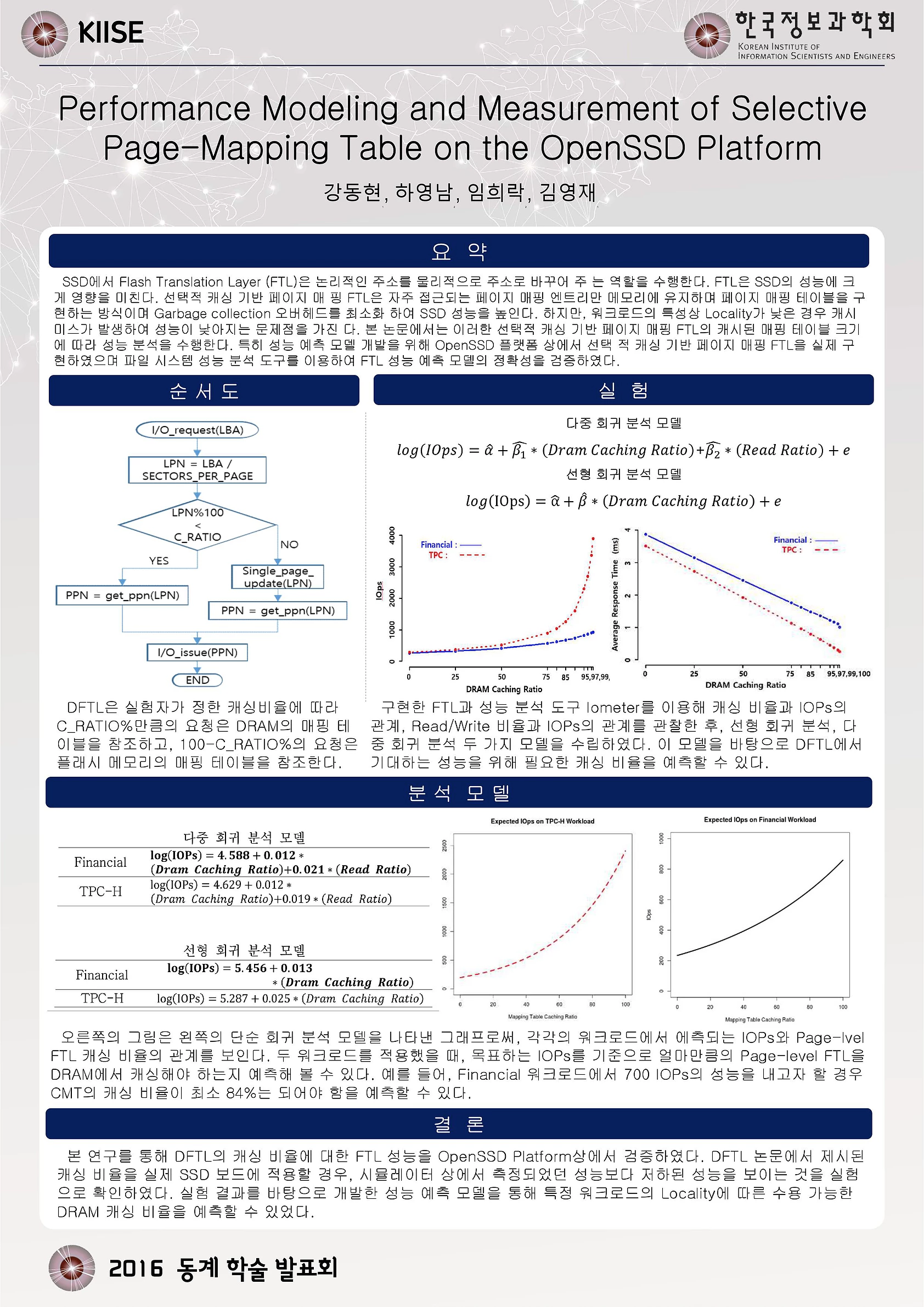
Abstract(KO-KR)
SSD에서 Flash Translation Layer (FTL)은 논리적인 주소를 물리적으로 주소로 바꾸어 주는 역할을 수행한다. FTL은 SSD의 성능에 크게 영향을 미친다. 선택적 캐싱 기반 페이지 매핑 FTL은 자주 접근되는 페이지 매핑 엔트리만 메모리에 유지하며 페이지 매핑 테이블을 구현하는 방식이며 Garbage Collection 오버헤드를 최소화하여 SSD 성능을 높인다. 하지만, 워크로드의 특성상 Locality가 낮은 경우 캐시 미스가 발생하여 성능이 낮아지는 문제점을 가진다. 본 논문에서는 이러한 선택적 캐싱 기반 페이지 매핑 FTL의 캐시 된 매핑 테이블 크기에 따라 성능 분석을 수행한다. 특히 성능 예측 모델 개발을 위해 OpenSSD 플랫폼 상에서 선택적 캐싱 기반 페이지 매핑 FTL을 실제 구현하였으며 파일 시스템 성능 분석 도구를 이용하여 FTL 성능 예측 모델의 정확성을 검증하였다.
Abstract(EN)
Flash Translation Layer(FTL) play a role that translate logical address to physical address in SSD. FTL have an important effect upon the performance of SSD. Demand-based Selective Caching of Page-level Address Mappings FTL(DFTL) is approach that store only continual page mapping entry. In this approach it increases the performance of the SSD by minimizing Garbage Collection overhead. However, Due to the nature of the workload, cache miss occurs when the locality is low, which results in a lower performance. In this pater, In this paper, performance analysis is performed according to the cached mapping table size of the selective caching-based page mapping FTL. In particular, to develop a performance prediction model, we implemented the selective caching - based page mapping FTL on the OpenSSD platform and verified the accuracy of the FTL performance prediction model using the file system performance analysis tool.